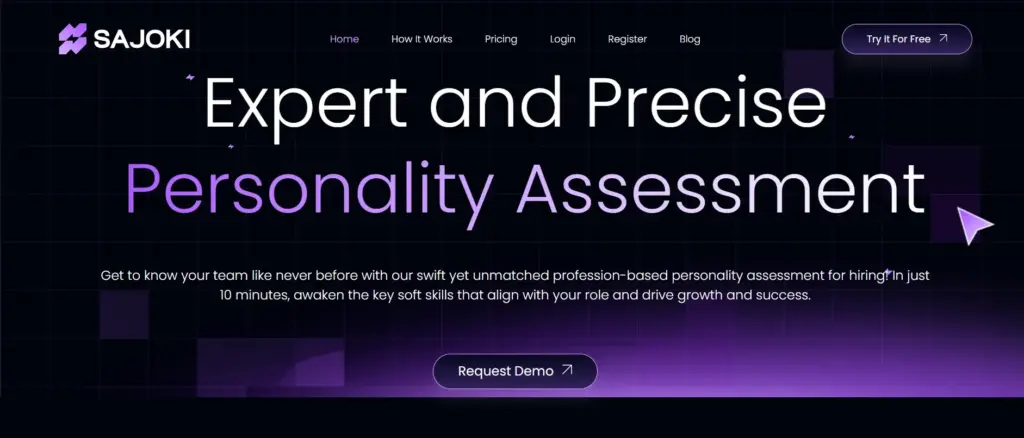We often undervalue what being on time means in the workplace. Well, have you noticed that the most reliable colleagues are always on time? Behind every punctual professional lies a set of soft skills that turn chaos into consistency.
So what soft skills relate to being on time?
The soft skills that help you be on time are: Time Management, Organization, and Responsibility. Furthermore, respect, self-discipline, and adaptability are also vital, which add up to punctuality.
In this blog, we will dig deep into every nitty-gritty detail there is about soft skills that are related to being on time. You will learn why it’s important, the essential soft skills to have, how to improve them, and lastly, what tools to use to measure soft skills.
Why Time-Related Soft Skills Related are Important in the Workplace: 5 Key Reasons
Before we get into what soft skills are related to being on time, you should be aware of why it’s important in the first place. Let’s check out how it affects the workplace.
1. People Trust You More
If you are always late, people start to question whether they can trust you or not with anything. They wonder if you can’t even complete a small thing, which is being on time, which becomes really hard for people.
This works on a subconscious level where it directly relates your punctuality to trust.
On the other hand, if you are there on time even for the smallest things, people get to trust you more. How does that work? Your colleagues think you are responsible for yourself and believe you will be able to do the tasks on your own and on time.
2. Workflow Gets Better
Employees tend to follow the domino effect. If one domino is late, the whole chain stops.
Being on time means no one has to re-explain things, redo work, or wait for you. Thus, everyone gets to be on the same page.
This small thing is so crucial for the workflow. As everyone is on the same page, meeting deadlines becomes easier, and nothing needs to be redone. Overall, it increases the workflow.
3. Less Stress For Your
Let’s be real, when you are late, you will be in a rush, and a lot of things go wrong from home to the office. You forget things, have trouble finding transport if required, and every small traffic jam just makes it more difficult.
Being on time eliminates all these stressors. You can have space to breathe, grab your coffee, and start your day fresh and slow. No sweat, no scrambling.
4. It Shows You Care
When you’re late, it feels like you don’t value others’ time.
We know you certainly don’t mean it, but that’s how things work. Showing up on time is like saying, “I respect you.” Simple, but powerful.
Additionally, apart from your colleagues and superiors, clients notice this too. This builds trust for your clients, thinking they can depend on this company as employees are on time.
Also, don’t forget that clients will choose someone who cares over talent any day of the week.
5. Sets a Good Example for Others
Regardless of whether you are in a senior or junior role, being early sets up a good example for others. If you are a senior, the juniors will see you arrive early even if you are their superior. Moreover, no one will tell you anything if you arrive late.
On the other hand, if you are a fresher, your on-time arrival will inspire your teammates as well as your superiors to be on time. This is also called the domino effect.
What Soft Skills Relate to Being on Time: 6 Essentials
Personality assessment tools give you an overview of the soft skills that are present in an employee. However, interpreting those results requires knowledge.
Well, now that you know why being on time is important, we will look at what soft skills relate to being on time so you can interpret easily.
1. Time Management

As you might have already guessed, the first soft skill is time management. Most assessment tools will have time management as a soft skill present, and you can know whether the employee is good at managing time or not.
A good time manager also knows how to arrive at the office without being late. Individuals with this soft skill generally plan their day ahead, prioritize tasks, and set realistic deadlines, which makes arriving at the office on time manageable.
2. Organization

Another soft skill that relates to being on time is organization. Even though being organized might not seem like a soft skill that points to being on time, it is. Organized folks keep everything in place and know where they are, such as keys, wallets, laptop chargers, or anything else.
As a result, they don’t have to waste their time here and there finding those essentials. Moreover, reaching the office on time becomes way easier as everything is organized and packed for the office.
3. Responsibility

Responsibility is a key attribute to look for when it comes to what soft skills related to being on time. Someone who is responsible also has the tendency to come on time as they feel they owe it to the office.
They think about the client who is waiting on the Zoom call as well as the colleague who is giving a proxy for them. A responsible individual feels bad about it and doesn’t want their work to be done by others. Nor do they like something to be repeated just because they arrived late.
4. Respect

Respectful people treat others’ time like gold. They don’t treat coming on time as an option but as an essential. Picture the boss who ends meetings on time so everyone can grab lunch.
This small act fosters a culture where everyone’s time is valued. Furthermore, the employees can also carry out the routine that they have planned throughout the day.
5. Self Discipline

Self-discipline means choosing work over distractions when it counts. It’s hitting “snooze” once instead of five times, or prepping a presentation at 8 PM instead of binge-watching Netflix.
However, that doesn’t mean the individual needs to work harder than everyone. They can turn off their laptop and head home at 5 p.m. sharp instead of choosing to be burned out while nailing the deadlines.
6. Adaptability

Undoubtedly, life doesn’t stick to schedules. Cars break down, Wi-Fi crashes, and surprise meetings pop up. Adaptability is the skill of rolling with these punches without hampering your day.
It’s about having a Plan B so that even when things go sideways, you still show up on time. Being flexible keeps small problems from turning into big problems. When things go south, teams trust people who are able to adapt because they know they will still get the job done.
Existing Relevant Content:
What are Employers Looking for in Personality Assessments
Useful Apps and Tools to Help You Be on Time
Staying on time can feel like a battle, and modern technology can ease the battle. Here are simple, everyday tools to help you be on time.
Digital Calendars
Digital Calendars like Google Calendar or Outlook are your new best friends. They don’t just remind you about meetings, they sync across your phone, laptop, and tablet, so you will never miss an alert.
This will come in handy to always be on time, whether it be a client or team meeting. Furthermore, you can keep notes there so you always know what to say.
Time Trackers
To be on time, you have to understand where your time is being spent in the first place. This is where time trackers like RescueTime come in handy to discover how your time is being spent.
Once you figure out where your time is going, you can work on those to lower the waste time on unproductive things. Furthermore, using this intel can help you assign important work to yourself when you are the most productive.
Alarm Apps
An alarm clock app is quite self-explanatory. It helps you wake up and be on time at your workplace or anywhere. However, the alarm app that comes with your phone isn’t as useful as we might think. It often fails to wake us up.
However, alarm apps like Alarmy are excellent substitutes for the default. You can’t press snooze 5 times and then expect it to stop. It will only stop when you wake up. How does it do that? It has features like vibrational turnoff, which only turns off after you shake your phone 50 times.
On the other hand, if you don’t like this, there’s also a math feature where you have to solve math problems for the alarm to stop. There are countless ways you can select to stop the alarm.
Habit Trackers
Habit Trackers like Habitica turn timeliness into a game. Track streaks like “7 days on time!” are really inspiring for individuals to be on time more. Even though these streaks look small, they play on a subconscious level.
The hack is to start small and then slowly increase it until the habit of being on time sticks with you.
Navigation Apps
Do you live in a heavy traffic area and are always stuck in traffic, which results in reaching the office late? Well, navigation apps like Google Maps are crucial to utilize.
With it, you know where the traffic is and can outsmart the traffic by taking a different route with a real-time traffic checker.
Tools To Measure Soft Skills Related to Being on Time
Let’s take a look at the tools you can use to identify someone’s trait of being on time.
1. SAJOKI

SAJOKI is a platform built to help individuals and businesses better understand personality and soft skills. Using the latest in AI technology, Sajoki delivers personalized insights that make processes like recruitment, team building, and leadership development easier and more effective.
You can use SAJOKI to find the soft skills individuals hold, which includes the ones listed above that are essential for being on time. Furthermore, convert that data to understand whether you are the type of person to be on time or not.
Existing Relevant Content:
Why SAJOKI Stands Out: Comparing Top AI Personality Testing Platforms
2. Mercer Mettl

Mercer Mettl is a global leader in personality assessments. They provide several types of assessments to fulfill any company/role needs. The tests include personality, behavioral, technical, and communication evaluations.
You will get data on candidates that you can rely on and easily figure out about their punctuality.
Existing Content Relevance:
10 Mercer Mettl Alternatives For Pre-Employment Personality Test
3. TestGorilla

TestGorilla is another market leader that can flawlessly measure soft skills. With advanced built-in features, separating people who are always on time from those who are not becomes way easier.
Another significant advantage of them is the integration with Applicant Tracking Systems (ATS), which can be very handy for the HR team.
Existing Content Relevance:
Top 20 Alternatives to TestGorilla
4. iMocha

iMocha is a combination of assessments that are based on both soft skills and technical skills. It comes with over 2000 tests that can help assess technical skills as well as soft skills.
Furthermore, iMocha enables you to customize the tests you can do to measure the soft skills that contribute to being on time.
5. BRYQ

BRYQ has a solid user interface that allows organizations to compare candidates’ strengths and weaknesses easily. Thus providing HR teams with a balanced view of each candidate’s potential and how they value time.
On the other hand, the integration capabilities of BRYQ with other HR tools are also solid.
FAQ
Let’s check out some frequently asked questions regarding what soft skills relate to being on time.
1. What can I do if I am always late?
You can start with small habits such as keeping your outfit ready the night before your workday. These small habits contribute to avoiding being late.
2. What if my boss is always late? Should I care?
Even though it’s frustrating to see, your boss being late shouldn’t affect you and still matters. There are new employees who look up to you and your colleagues as well, who are affected by your punctuality.
3. Is it okay to be late sometimes?
Absolutely, everyone can face unexpected issues, and it is okay to be late sometimes. However, it’s best that you communicate with your team and let them know.
Conclusion
Throughout the guide, we have explored what soft skills relate to being on time. All of the 6 soft skills mentioned are vital and contribute to being a punctual individual. However, if we have to select one that contributes the most, it would be self-discipline.
On the other hand, using technology to help you be on time is also an option. Our suggestion would be to use as much as you can of those productive apps to become punctual. Lastly, tools like SAJOKI and Mercer Mettl are always there to identify those soft skills easily.




